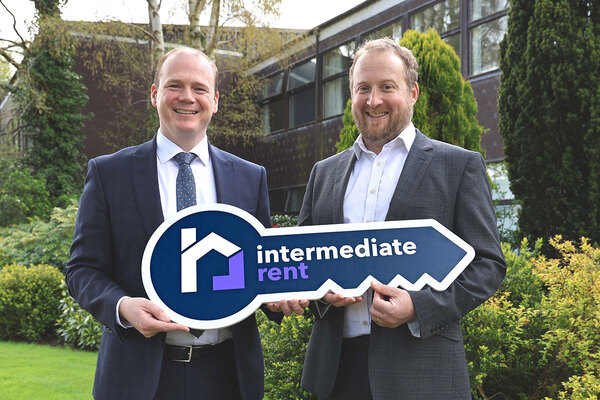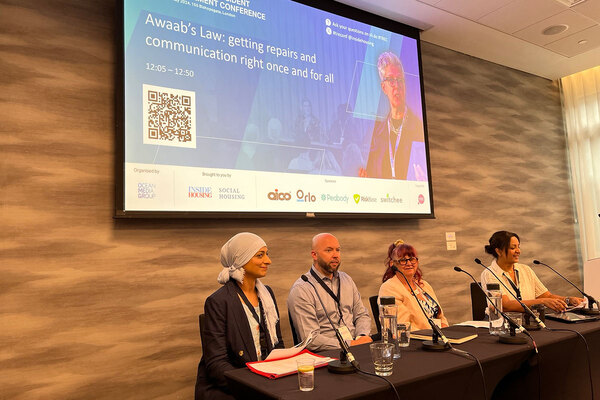You are viewing 1 of your 1 free articles
What does the Economic Crime Levy mean for social housing?
Edward Flanagan and Caroline Mattin ask whether the Economic Crime Levy places an unnecessary burden on the sector and exacerbates the current housing crisis
It is widely accepted that England is facing a housing crisis. Homelessness is on the increase and private rents, house prices and mortgage rates are skyrocketing, leaving many people priced out of renting or buying a home.
Social housing can provide the answer but there is nowhere near enough to meet demand. Research carried out for the National Housing Federation and Crisis shows that 90,000 new social rented homes are needed every year but a lack of funding means only about 5,000 are being built.
On top of the lack of public funding to increase social housing development, housing associations are also facing the additional financial burden of having to pay the Economic Crime Levy.
The Economic Crime (Anti-Money Laundering) Levy (ECL), is an annual charge that applies from 1 April 2022 to anti-money laundering (AML) regulated entities with UK revenue in excess of £10.2m.
The ECL is intended to provide a long-term and sustainable resourcing model to help fund government action to tackle money laundering and support delivery of the government’s Economic Crime Plan 2019. The levy is intended to raise approximately £100m per year. The government has promised to undertake a review of ECL by the end of 2027 and to provide annual reports on its operation.
ECL applies to certain AML-regulated entities and is charged if the entity’s UK revenues for a financial year exceed £10.2m. HMRC estimates that, of the circa 90,000 AML-regulated entities, only 4,000 will be caught by ECL.
“If a social housing provider is carrying out credit-related activities, offering debt advice to tenant, broking, where staff might make recommendations about specific financial products… then it will likely need to register to pay ECL”
Unless a social housing provider is carrying out a regulated activity within the meaning of the Regulated Activities Order, then they won’t need to be regulated by the FCA and register for the ECL. However, if a social housing provider is carrying out credit-related activities, offering debt advice to tenant, broking, where staff might make recommendations about specific financial products or providers or conducting ‘estate agency’ business (share ownership resale activities), then it will likely need to register to pay ECL.
HMRC is the supervisory body for ‘estate agency businesses’ and ‘letting agency businesses’ and those that carry out ‘estate agency’ and ‘letting agency’ activities.
Housing associations may also conduct other activities that fall within the scope of the MLRs and should ensure that they have identified all such activities (as detailed in clause 8 of the MLRs) and have registrations with the appropriate supervisor(s) in place.
As the application of the ECL is based on revenue, rather than risk, the fact that part of the business which is affected may be very small or low risk does not lessen the housing association’s liability to pay the ECL. The ECL is based on an individual housing association’s revenue and not consolidated group revenue. Therefore, each entity within a group that meets the ECL requirements will need to separately register for and pay the ECL.
The ECL is paid as an annual fixed fee that will be determined by the band in which a housing association sits, based on its revenue for the relevant financial year.
The obvious concern for social housing providers is if the fixed levy rate exceeds the limited revenue generated from the resale activity that brought the association into the ECL remit in the first place. This could affect the viability of the in-house resale function and cause providers to structure their business differently or outsource the function, adding additional financial burden on already over-stretched pockets.
“As the application of the ECL is based on revenue, rather than risk, the fact that part of the business which is affected may be very small or low risk does not lessen the housing association’s liability to pay the ECL”
It might be possible for a housing association to escape ECL registration if it can rely on exemptions set out in the MLRs, for example if the regulated activities caught by the regime are only carried out on an “occasional or very limited basis”. This will depend on whether the turnover requirements triggering registration are met and the nature and extent of the activity within the association’s business.
The National Housing Federation is applying pressure on the FCA and HMRC to discuss proportionality of the ECL’s application to the sector and raising awareness of the burden that this regime is placing on the current housing crisis in the UK. It will be interesting to see the results of these discussions.
However this raises a key question for many captured by these regulations, in that is it critical to provide credit and thereby be regulated by the FCA? Some have found after subjecting themselves to greater scrutiny that such levels of regulation are not business critical. This has led to deregistrations. Equally is the entity providing estate agency services? A time for reflection and action, before next year’s bill arrives.
Edward Flanagan, partner, and Caroline Mattin, professional support lawyer, Shakespeare Martineau
Sign up for our legal and regulation newsletter
Already have an account? Click here to manage your newsletters













